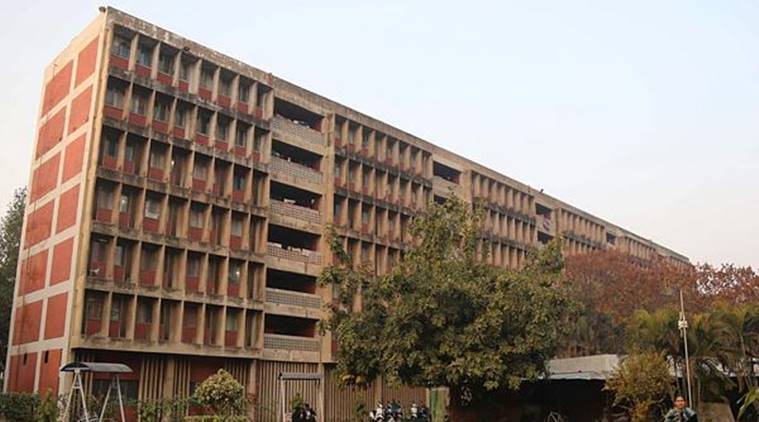 The varsity has a vibrant history of holding democratic elections to the Panjab University Students’ Council (PUCSC) even though student union elections had been banned in Punjab since 1984 due to militancy. Express Photo by Sahil Walia
The varsity has a vibrant history of holding democratic elections to the Panjab University Students’ Council (PUCSC) even though student union elections had been banned in Punjab since 1984 due to militancy. Express Photo by Sahil Walia
STUDENT PARTIES and organisations at Panjab University have hailed the Punjab government’s decision to allow student council elections in universities and colleges of Punjab from 2019. On Tuesday, Chief Minister Amarinder Singh told the Assembly that student union elections would begin in universities and colleges from the next academic year. Political parties and student leaders have long demanded the revival of these elections in Punjab. This will be a great vantage point for student bodies in PU as Punjab forms a major chunk of the student strength at the university.
The varsity has a vibrant history of holding democratic elections to the Panjab University Students’ Council (PUCSC) even though student union elections had been banned in Punjab since 1984 due to militancy. Just last month, neighbouring state Haryana also announced student body elections in the state from 2018 after 22 years. The colleges in Chandigarh hold student body elections every year, providing a space to students to discuss their issues and a platform to raise their voice for student rights.
Vani Sood, secretary, PUCSC 2017-18, said, “This is a great step by the Punjab government. This will not only help improve the functioning of colleges, but will also increase the participation of youth in mainstream politics.” She added that PU was exemplary in terms of producing young and vibrant leaders and this step will boost leadership skills in students. Nishant Kaushal, president, PUCSC 2016-17, said, “It is good news as students elections are meant to represent and raise student issues in front of the authorities and to make students aware of their rights and give a chance to them to join politics as a career.”
The announcement is an opportunity for student wings of political parties as well as other student bodies to expand their support base and take their politics to campuses outside PU. The Students for Society (SFS), a Leftist outfit not aligned with any political party, said student politics was already prevalent in Punjab and many organisations were working in colleges. “This move by the Punjab government is basically taken under the pressure of the long-pending demand of student organisations. In actuality, it’s recognising and legitimising prevailing student politics,” said SFS leader Daman Preet. However, he added, it will increase the democratic space and will serve people in the long term.
“Working among people of Punjab has always been our perspective. So, we are looking forward to how it unveils,” he said. Vickey Middukhera, Chandigarh chief of Students’ Organisation of India (SOI), the Akali student wing, said, “The SOI has created a niche among the youth in the last 10 years and it will play a major role in student politics, growth and development across Punjab. We have a strategy to take our cause to other colleges and universities. We welcome the government’s move.”
While the ruling NSUI thanked the Captain, the Akhil Bharatiya Vidyarthi Parishad (ABVP) also raised questions on the government’s roadmap for the student elections. “We welcome this step of the Punjab government. The ABVP has demanded this for a long time and we have also protested over this issue. However, I want to know the government’s roadmap for the council elections and whether they will be direct or indirect,” said Harmanjot Singh Gill, a member of central working committee of the ABVP. He added that the government should call a meeting of all the student organisations for advice.
“We thank the Captain for his move of resuming the student council elections in Punjab after 35 years. Students are already troubled due to the maladministration in colleges and will get a chance to raise their voice and get their grievances addressed,” said Manoj Lubana, a leader of the National Students’ Union of India (NSUI), the student wing of the Congress. Another campus student organisation, Punjab Students’ Union (Lalkaar), welcomed the move. Their convener, Amandeep, said, “The revival has been a long-pending demand of students in Punjab. We hope that the student elections will provide a platform to students to voice their demands and their dissent as well.”